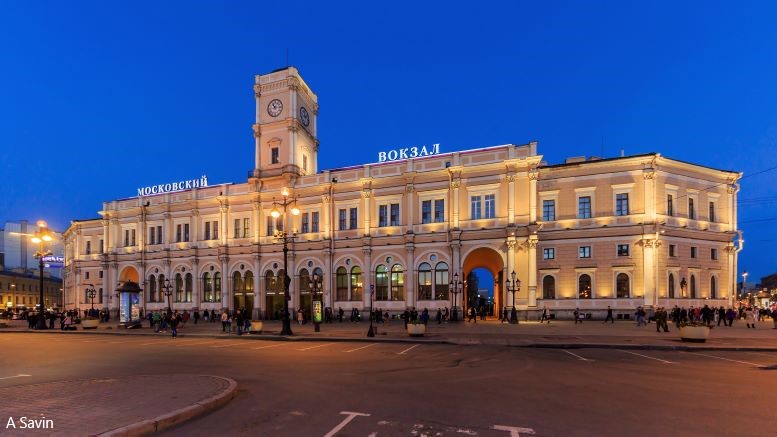
Two very different stories about Russian railways crossed Rail Infrastructure’s desk just after Christmas 2019.
The first was a ‘good news’ story from international rail industry magazine Railway Gazette. It reported that the government of St Petersburg has agreed with Russian Railways to invest 500 billion roubles (£6.2 billion) developing passenger rail services in and around the city by 2030, with the first 90 billion roubles (just over £1 billion) being spent in 2020-25.
The plans are reported to include the provision of frequent urban passenger services, facilitated by the construction of new bypass lines so that all freight traffic can be re-routed to pass outside the city limits.
Included in the plans is the modernisation of Moskovsky and Vitebsky stations and Udelnaya suburban station as well as nine road and rail grade-separation projects.
So that’s good news from St Petersburg.

More questionable was the second story, which was reported by English language news website the EurAsian Times. Russia was celebrating the opening of the Kerch Strait rail bridge that links mainland Russia with the Crimea.
Actually two parallel bridges, one road and one rail, the Kerch Strait bridge is 19km (11.8 miles) long and is possibly the longest bridge in Europe. It opened to road traffic in 2018 and the first scheduled train service crossed the bridge on 25 December 2019.
Which all sounds like a good thing. Except, most of the world considers the Crimea to be part of the Ukraine, illegally seized by Russia, and so views the new bridge as a very bad thing.
A European Union statement noted: “The Russian Federation has finalised the construction of the railway section of the Kerch Bridge and is opening railway traffic to the Crimean Peninsula without Ukraine’s consent. This constitutes another violation of Ukraine’s sovereignty and territorial integrity by Russia.”
The statement continued: “The railway link is yet another step towards a forced integration of the illegally-annexed peninsula with Russia and Crimea´s isolation from Ukraine of which it remains a part.”
The idea of a bridge between Crimea and Russia is not new. A temporary affair was built during 1944 and the Ukrainian and Russian governments signed an agreement to build a new bridge back in 2010. As late as January 2014, the two countries decided that a new joint Ukrainian–Russian company would handle the construction of the bridge and Avtodor, the Russian Highways authority, would be responsible for the bridge in the long term.
But the political situation between the two countries deteriorated and Russia annexed Crimea in March 2014. Seeing the need for good transport links with its new territory, Russian President Vladimir Putin announced his intention to build the bridge on 19 March 2014, just one day after Russia officially claimed Crimea.
The contract to build the bridge was awarded to Stroygazmontazh (SGM Group), a company that normally builds oil and gas pipelines and had never built a major bridge before, although company owner Arkady Rotenberg is reportedly a close friend of Vladimir Putin.
The contract required SGM to complete the railway link by 1 August 2019, and fully complete all works on the bridge by 1 December 2019, so, despite the company’s inexperience, it seems to have fulfilled its contract. However, sanctions have been imposed upon it by the EU and US authorities, allegedly leading to Arkady Rotenberg selling the company off.
But the bridge is still a political challenge, and not just for its road and rail links. All shipping to two major Ukrainian ports on the Sea of Azov must pass under the bridge’s main span, which is a minimum of 33 metres (108 feet) above the surface of the sea. At least one bulk carrier has had to have its mast shortened so it will fit and there are also reports that the Russian navy delays the passages of ships headed for Ukrainian ports. Indeed, in one incident in November 2018, the Russians seized three Ukrainian vessels, claiming they had violated Russian sovereignty, and closed the channel to shipping for three days.
Thus 2019 ends with two very different Russian railway stories. Hopefully, 2020 will bring more good news, and less of the politics. But only time will tell.


Be the first to comment